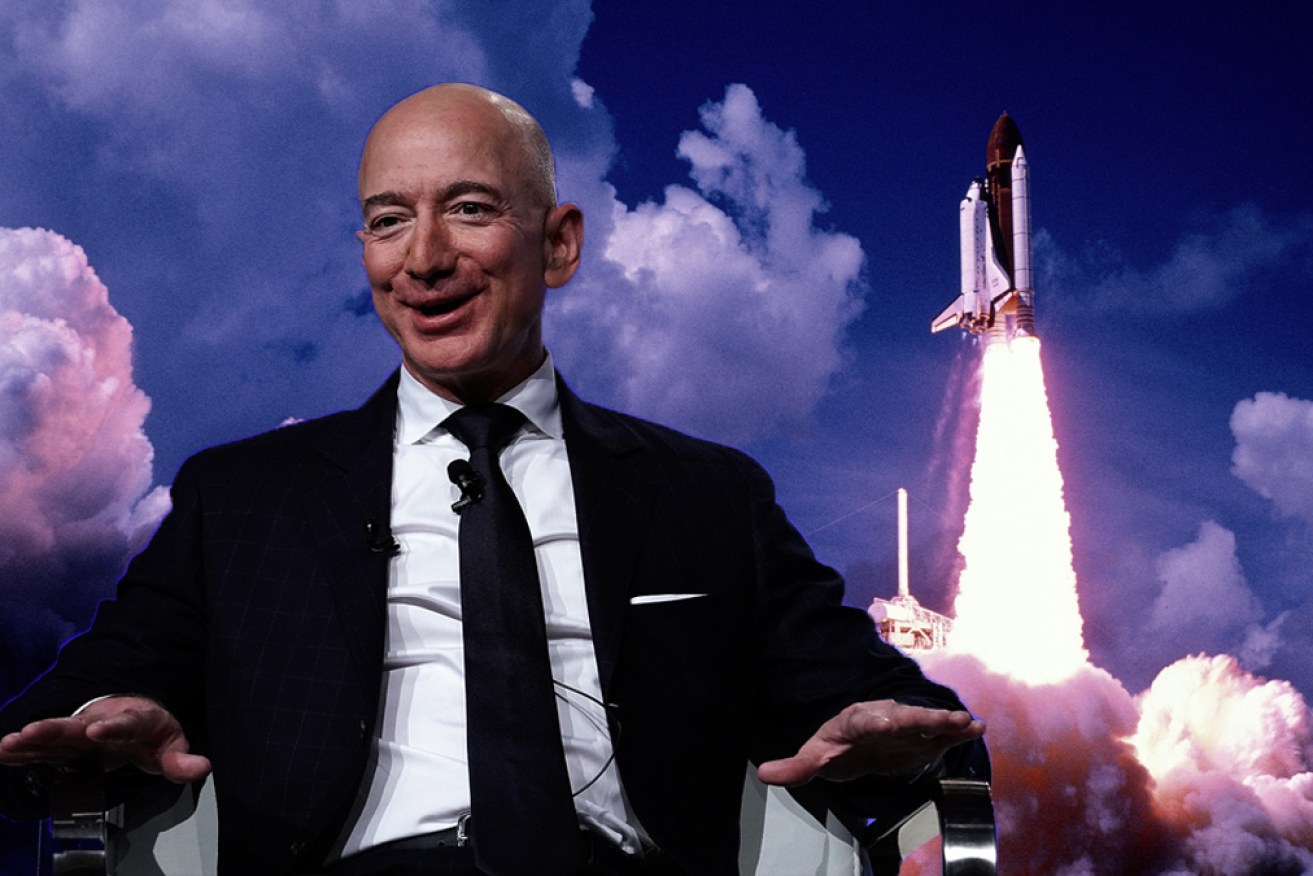What will happen in Jeff Bezos’s 11-minute space flight


Jeff Bezos, the world’s richest person, flew into space for about 10 minutes. Photo: Getty/TND
In 11 minutes you could boil an egg, change a lightbulb or walk a kilometre – and soon you could be able to go to space.
Or at least if you belong to the uber-rich tier, for whom money is no object.
Next month Jeff Bezos’ space flight will take off.
The world’s richest person will fly into space on a rocket developed by his company Blue Origin.
And people are prepared to drop big bucks to join him. Last week a spare seat on the company’s July 20 blast-off was auctioned off to an unknown bidder for $US28 million ($36 million).
As for Bezos, some experts have even tipped he’ll come back a changed man.
What will Jeff Bezos’ space flight be like?
When most people imagine a space flight, they think of orbiting Earth.
But this trip will be much different, Professor in Astrophysics from the University of Southern Queensland Jonti Horner said.
It will go up and then it will come down – very quickly.
“It will be like Charlie and the Great Glass Elevator,” Professor Horner told The New Daily.
“They’re in this capsule. They won’t have to steer. There will be these nice comfy seats and huge windows.
“They’ll have a good view while they experience a few minutes of weightlessness.”
He said when they reach space it will be similar to that feeling you get on a trampoline – when you hit the top of your jump, for a moment it feels like you’ve stopped moving. Suspended.

Blue Origin will be like a trampoline jump, but better, experts say. Photo: Blue Origin
“They’ll be able to see the curvature of the Earth. It’ll be spectacular,” Professor Horner told The New Daily.
“And then they will fall down and down until the parachutes open.”
At that point, the group of six (who precisely, the company is yet to confirm) will feel a huge force on their bodies as they descend.
To get a seat on the ship passengers must be between 152 and 193 centimetres tall and weigh between 49 and 101 kilograms.
They must also be reasonably fit. You need to climb the seven flights of stairs of the launch tower in less than 90 seconds, before sitting in your seat for 90 minutes without needing to use the bathroom.
The company also said passengers need to be able to withstand gravitational forces of as much as five and a half times their own body weight during descent, as well as three times as much on the way up.
So is it dangerous?
Although we often think of space travel as dangerous, the ship and its passengers should make it back down in one piece, said Alice Gorman, Associate Professor in space exploration at Flinders University.
“Space people are fond of saying that space is dangerous, and there have certainly been many failed launches over the decades,” Associate Professor Gorman told TND.
But while this is the first passenger mission for the New Shepard launch vehicle, it has been successfully launched 15 times previously without accident.
“By taking this risk, Bezos is demonstrating that he’s prepared to back Blue Origin’s technology and this will build confidence for future space tourists,” Associate Professor Gorman said.
And what he is chasing is worth the risk, she said.
“Bezos has said that he wants to experience the ‘Overview Effect’. This is an emotional reaction reported by astronauts to seeing Earth from outside,” she explained.
“They are struck by the fragility of the planet and feel strongly that humanity should be united in protecting it. Perhaps he’ll come back a changed man and donate his incredible wealth to ending global poverty.”
So when can I go?
More humans will soon be able to float weightless as they take an aerial look at the globe, Associate Professor Gorman said.
They’ll just need to be rich.
“In the new era of commercial space, we’re seeing the so-called ‘space billionaires’ starting to set the agenda,” she said.
“It’s doubtful whether commercial companies intent on making a profit are going to be very concerned about equal access to space for everyone on Earth.”
But that doesn’t mean it won’t always carry the huge price tag, Professor Horner said.
“The price of launching to space has dropped by a crazy amount – 100 per cent, if not more – in the last decade,” he said.
There could, within a lifetime, be reasonably affordable space travel, with the option to stay for weeks in a hotel, he said.
“There are already companies planning to build space hotels in the next decade,” Professor Horner said.
“The reason companies are looking at that because the commercial capacity means people will get to space cheaply and safely.”








